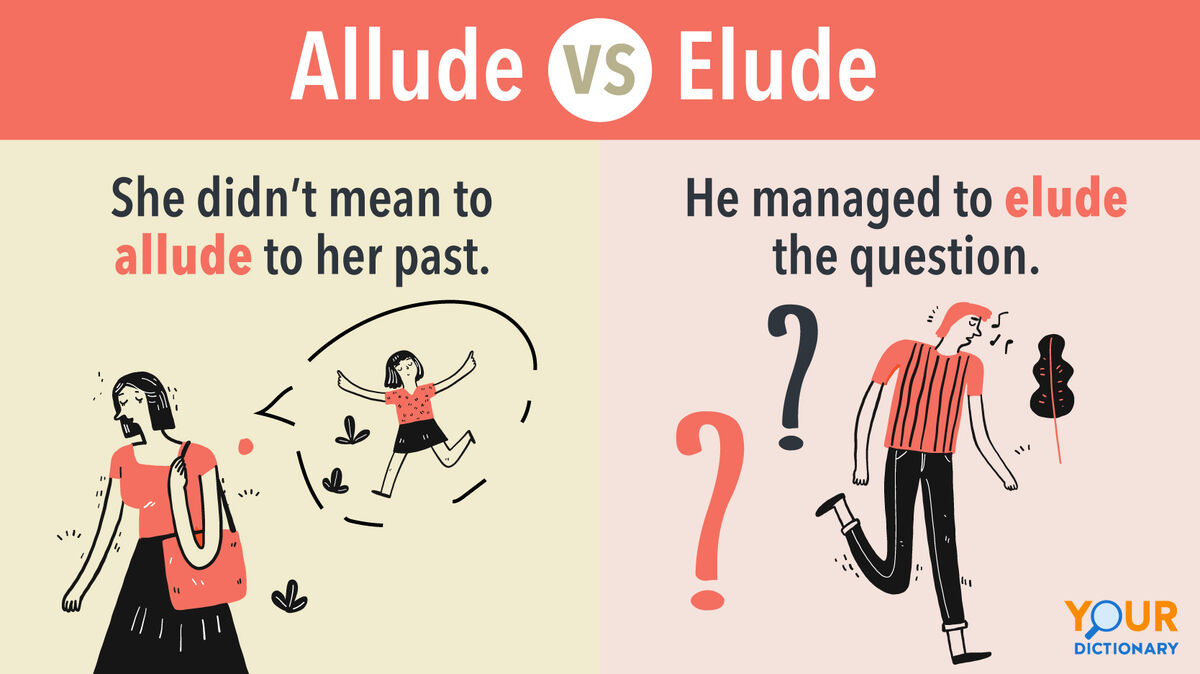
Do you allude to an event or elude to an event? Do you allude a question or elude a question? Explore the difference between allude and elude, so you can learn how to use both correctly in context.
Remember the Difference: Allude and Elude
Allude and elude are homophones, words that sound the same or similar but are spelled differently and have different meanings. They are also both verbs.
allude - to refer to something vaguely or indirectly
elude - to avoid or escape
How to Use Allude in a Sentence
Allude can mean “to suggest,” “infer” or “hint at” something. Allude is the verb form of allusion. Allusion is also a literary device that references a person, place, thing, or idea, including other literary works, historical events or mythology.
They allude to their previous points but do not elaborate.
The author claimed that his new book did not allude to his previous works.
She alluded to her past.
How and When to Use Elude
When you elude something, you avoid or get away from it. This can apply to someone physically escaping something or more abstract things like thoughts or sleep.
He attempted to elude the question.
They had managed to elude authorities for months.
She tried to remember, but the thought eluded her.
Peace eluded him.
What About Allusion and Illusion?
Other similar terms include allusion and illusion. As previously mentioned, allusion is a device used to directly or indirectly reference things, often in literary works.
The writer used allusion to make a point.
The speech made an allusion to current events.
The text made an allusion to Shakespeare’s Macbeth.
Illusion, on the other hand, is a distorted impression or false perception of something.
Hope is an illusion.
The magician’s most impressive act was an illusion.
I have no illusions about what’s really happening.
Master the Words That Elude You
If other deceptively similar words elude you, read up on more homophones like affect and effect where spelling makes all the difference. Then, check out what distinguishes enquire and inquire besides their spellings.